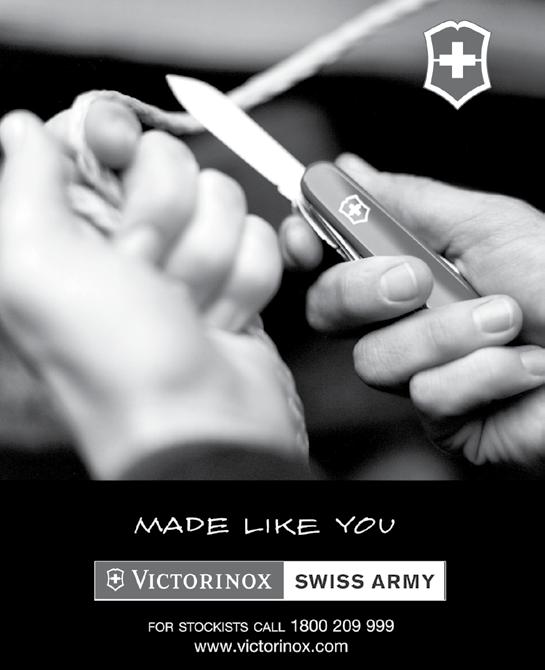SPORT PSYCHOLOGY
TROY MERCHANT
JWOC in Dubbo Sport Psychology on show! Jason McCrae – Psychologist
J
WOC in Dubbo presents an opportunity to watch elite orienteers from all around the world compete. Such opportunities can be few and far between for the average Australian orienteer with big, world-level competitions only being staged here every 5-10 years. As well as the chance to watch world class orienteers’ do their stuff, it’s also an opportunity to watch how elite orienteers deal with ‘pressure’, or in some cases, don’t! As a consequence in this article I’m going to repeat some of the key principles of sport psychology I wrote about in my first article in The Australian Orienteer, March 2005.
Sport Psych 101 – the Inverted U One of the key components Sports Psychology utilises is the Inverted U theory. The Inverted U theory states that performance is dependent on arousal with arousal defined as a person’s anxiety levels, levels of tension or general excitement before and/or during a race. As a person’s arousal increases their performance increases, until a certain point, when it decreases dramatically (Figure 1). So for example a person who is not very excited about going Orienteering on a local map that they’ve run on 20 times before, will have a below-par performance. Conversely a person who is overly “pumped up” and very tense and excited will be too anxious to perform to the best of their abilities. The zone for getting the best performance is ‘somewhere in the middle’ with each person’s curve slightly different. For example tennis player Lleyton Hewitt’s inverted U is probably further to the right hand part of the graph than most as he appears to need to be really ‘pumped up’ to perform well. Figure 1. Performance
Nick Andrewartha leaving a control at the Australian 3-days.
• Being away from home means away from normal routines. In the lead up competitors are usually on training camps, focussing on maps and terrains for JWOC and as a result not doing the ‘normal’ things they do that stop them focussing only on Orienteering. While school, uni, work, family, friends, social life and other ‘normal’ things might prevent a JWOC competitor from having the ideal physical preparation, these things can actually help to produce a good mental preparation. They keep what happens at JWOC in perspective and ‘distract’ minds from getting tense and overly focussed on the importance of JWOC. Remember whatever the results are at JWOC the sun will still come up tomorrow! • Some of the juniors will be experiencing for the first time being the focus of the Orienteering event. This will mean, for starters, lots of well-wishers. Competitors from overseas will receive emails and phone calls while the Australian team will have friends, family and fellow orienteers wishing them good luck in person. Additionally competitors might be doing media interviews or hearing themselves as the focus of event commentary. While all these things are exciting and enjoyable they don’t help a competitor to orienteer at their best and can have a ‘side-effect’ of building worry, tension, expectation and impact on performance.
JWOC’ers staying in control So what might Amateur-Sport-Psychologist-spectators notice in those JWOC’ers who are keeping ‘in the zone’: • At the start especially, but also the finish, those ‘in control’ will be sticking to the same routines they have every time they orienteer – be it a local club event, Street-O or JWOC. These routines might include chatting with friends before the start, a particular warm up (or warm down) and that these routines happen no matter what well wishers or media are around.
Tension at JWOC
• At spectator controls seeing the juniors who remain focussed on what they are doing in terms of planning the next leg, exiting the control in the correct direction and even checking control descriptions, could indicate a competitor who is ‘in the zone’ and orienteering well.
One of the challenges for JWOC runners will be that it will be very easy for them to get too tense to perform at their best (they will be mentally at the right hand end of their inverted U graph). Factors for the JWOC participants at Dubbo that could lead to them being too tense or excited to perform at their best will include:
• Additionally at the spectator controls you might ask yourself where is the competitor you are watching looking? If they only have eyes for the map, compass and terrain then that can often indicate someone who is orienteering at their best, not tense or distracted by all the ‘hoopla’ that can go with an event such as JWOC.
• Having trained for and focused on JWOC for a long period of time (at least the year since the last JWOC) a runner might focus on how much effort, time and resources they have put into the race, leading to worrying about the result.
The juniors doing those things could well have stuck to their routines, visualised performing well, practiced their concentration routines or just thought through and planned for some of the scenarios presented above.
Arousal / Excitement / Tension
18 THE AUSTRALIAN ORIENTEER JUNE 2007


















